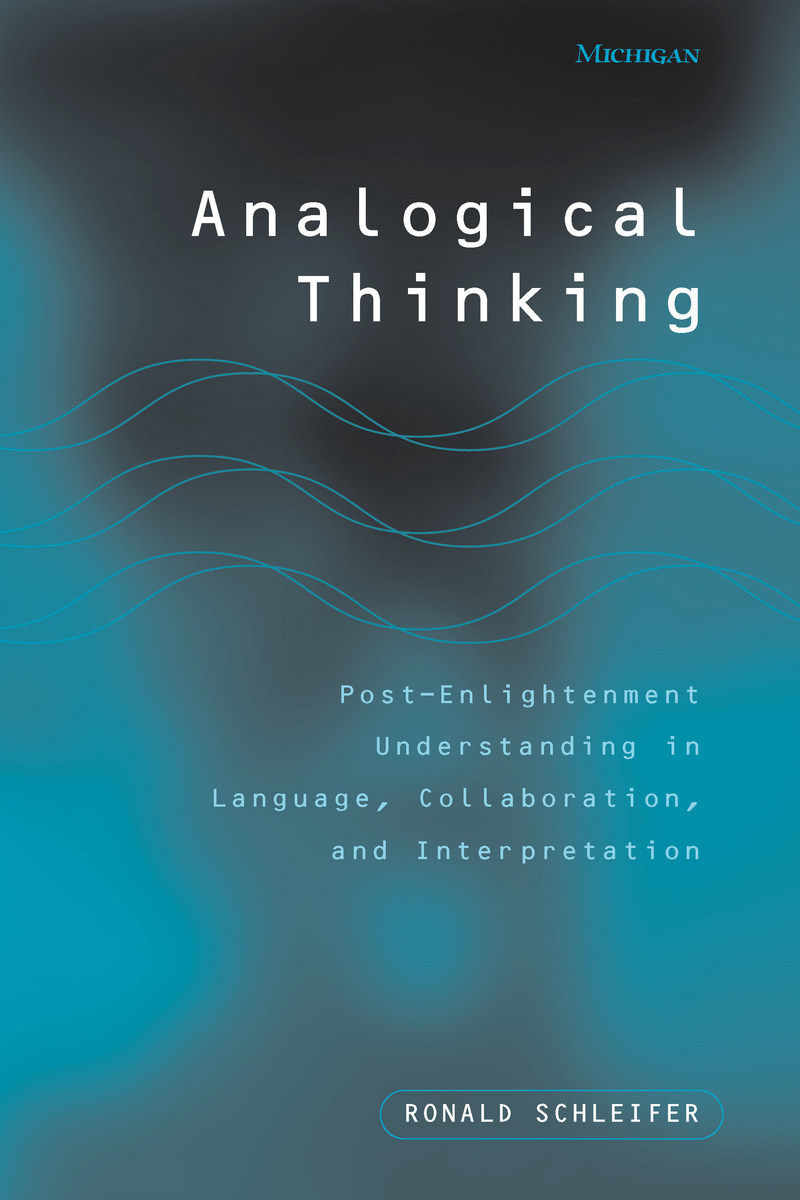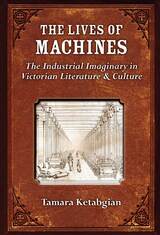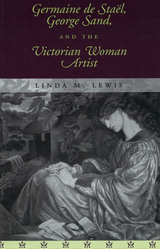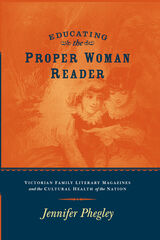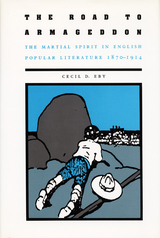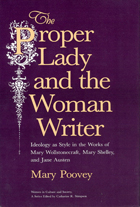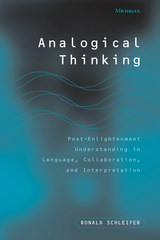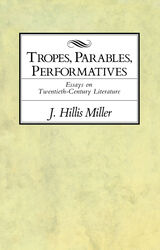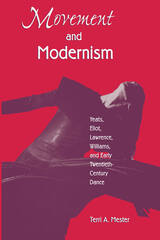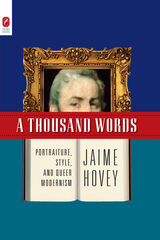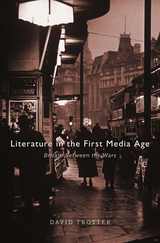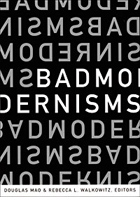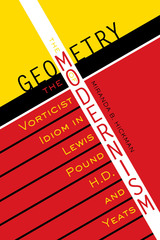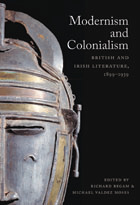Analogical Thinking: Post-Enlightenment Understanding in Language, Collaboration, and Interpretation
University of Michigan Press, 2001
Cloth: 978-0-472-11088-9
Library of Congress Classification PR471.S335 2000
Dewey Decimal Classification 302.2
Cloth: 978-0-472-11088-9
Library of Congress Classification PR471.S335 2000
Dewey Decimal Classification 302.2
ABOUT THIS BOOK | AUTHOR BIOGRAPHY | REVIEWS | REQUEST ACCESSIBLE FILE
ABOUT THIS BOOK
Analogical Thinking argues that sometime around the turn of the twentieth century, a new mode of comprehension arose, supplementing received Enlightenment ideas concerning the nature of understanding and explanation. Focusing on the innovations of structural linguistics and its poststructural legacy, the individualism of Enlightenment knowledge and the collaborations of post-Enlightenment information, and practices of reading and interpretation across the arts and sciences, Analogical Thinking examines the ways in which analogical presentations of similarities respond to the experiences of twentieth-century culture.
The book traces this mode of thinking in linguistics, collaborative intellectual work in the arts and sciences, and interpretations of literary and sacred texts, concluding with a reading of the concept of Enlightenment in a comparison of Descartes and Foucault. The book examines the poststructuralism of Derrida; the collaborations of information theory and modern science as opposed to the individualism of Adam Smith and others, and analogical interpretations of Yeats, Dinesen, the Bible, Dreiser, and Mailer. Its overall aim is to present an interdisciplinary examination of a particular kind of understanding that responds to the experiences of our time.
Ronald Schleifer is Professor of English, University of Oklahoma. His books include Rhetoric and Death: The Language of Modernism and Postmodern Discourse Theory, Criticism and Culture; and Culture and Cognition: The Boundaries of Literary and Scientific Inquiry.
The book traces this mode of thinking in linguistics, collaborative intellectual work in the arts and sciences, and interpretations of literary and sacred texts, concluding with a reading of the concept of Enlightenment in a comparison of Descartes and Foucault. The book examines the poststructuralism of Derrida; the collaborations of information theory and modern science as opposed to the individualism of Adam Smith and others, and analogical interpretations of Yeats, Dinesen, the Bible, Dreiser, and Mailer. Its overall aim is to present an interdisciplinary examination of a particular kind of understanding that responds to the experiences of our time.
Ronald Schleifer is Professor of English, University of Oklahoma. His books include Rhetoric and Death: The Language of Modernism and Postmodern Discourse Theory, Criticism and Culture; and Culture and Cognition: The Boundaries of Literary and Scientific Inquiry.
See other books on: 1865-1939 | Collaboration | English-speaking countries | Interpretation | Modernism (Literature)
See other titles from University of Michigan Press
